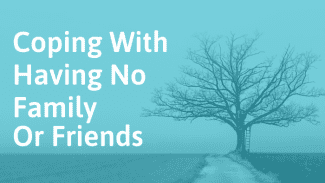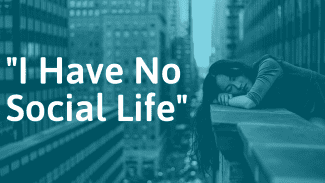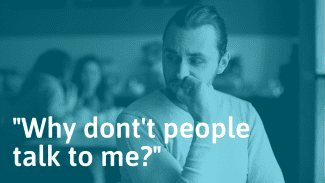When someone we trust suddenly disappears with no contact, it leaves us shocked and dismayed. It can deeply hurt us and discourage us from trusting others or reaching out. Ghosting, according to Merriam Webster, means to “suddenly cut off all contact with someone.” Unfortunately, the disrespectful act of ghosting is on the rise, both in careers as well as relationships. Indeed.com published an eye-opening report in February 2021 stating that 77% of job seekers have been ghosted by a prospective employer, yet 76% of employers have been ghosted by a candidate who no-showed.
Ghosting has increasingly affected my life. I’ll share a quick “ghost story” to illustrate how it can derail our lives. As a newly vaccinated baby boomer searching for a studio to rent, I met the property owner (I’ll call “Lisa”), a kind, hard-working young mother who claimed she had “been through hell” the past month trying to find the right tenant. She had survived a whole slew of ghostings in just the past month: First, her live-in boyfriend suddenly disappeared after a year-long “pandemically sealed” relationship, then, her prospective employer never contacted her after a verbal job offer and background check, and then, a prospective “serious” tenant no-showed for the signing of the lease. Shattering her self-confidence, this triple whammy of ghostings triggered a flare-up of “who can I trust?” angst.
“This crappy treatment keeps happening to me!” She sighed.
We bonded in an odd, tender, boomer-to-millennial way, as I told her I too had just been ghosted by a company interested in hiring me as a consultant. Ghostee to ghostee, we vented for an hour.
“Everybody is doing it these days, but it should be totally unacceptable behavior. I should stop thinking it’s only happening to me—right?” She lamented.
“Right! I declared. “I wish people would stand up to this treatment and hold on to their decency—it seems the least we can do is say a simple ‘thank you’ or just a few kind words such as ‘I’m sorry.’”
After viewing her studio for rent, I gently admitted that it was too small for my needs, but I expressed interest in occasionally babysitting for her daughter. She was pleased and relieved to hear that I could help out. “Maybe there is some reason I was supposed to meet you today—not as a renter–but as someone to restore my faith in humanity.”
Indeed, commiserating with Lisa lifted my mood out of my funk. I’d been hunting for a place to live in the middle of February in snowy Massachusetts, in the middle of a pandemic, all because my landlord was in a hurry to sell her property while the housing market was hot.
I reassured Lisa how our connection today was important. As we ended our conversation, I thanked her, wished her well, and promised to stay in touch.
But I was on fire that this ugly treatment called ghosting had caused so much chaos in Lisa’s life, on top of the uncertainty of the pandemic. I was determined to learn more about what ghosting was doing to us. In weeks of research, I learned more about how this noncommittal, flaky behavior is being normalized. One reason is that people who have been ghosted are more likely to ghost on someone else. This study indicated that frequent ghosting in one area of life (career/business) may have a normalizing effect on how we treat our other relationships. It seems that what goes around comes around.
Even though we realize that ghosting is more prevalent in our culture, it still can deeply hurt us. We could be suffering a true grief response to such an abrupt and inexplicable ending of a relationship. Our peers might tell us to get over it, dust ourselves off, move on, and “don’t take it personally,” but that well-intended advice could make us feel ashamed for feeling bad—adding one more layer on top of the real grief we are bearing.
I would like to tackle the issue of how grief affects us after being ghosted. I will tap my experience as a former rehabilitation counselor for twenty years and draw on my understanding of the kinds of unsharable grief that are somewhat different than the grief of bereavement.
Grief is a very common–and a very human–reaction to being ghosted. We may be facing a messy mix of grief reactions such as shock, denial, anger, sadness, bargaining, along with short breakthroughs of acceptance. These wide-ranging feelings can burst through in no particular order and can surprise us.
It would be fair to say that the grief we are feeling is either what is known as ambiguous grief, or it could be disenfranchised grief, or a mix of both. Both kinds of grief can include all the stages of grief as well as related physical aspects—physical pain itself. Grief and rejection can cause real physical pain, which an American Psychological Association article describes.
Ambiguous loss: Pauline Boss, Ph.D. in the 1970s coined this important concept in the world of grief. This is a kind of inexplicable loss that has no closure and can never completely be understood. Grief caused by trauma, sudden endings, war, pandemics, natural disasters, or other erratic, catastrophic causes can leave us hanging, with no resolution or concrete understanding.
Disenfranchised grief is a term coined by grief-researcher Kenneth Doka, Ph.D., in his book in 1989, Disenfranchised Grief: Recognizing Hidden Sorrow. This is a kind of grief that is unsharable because we feel embarrassed to admit it or tell someone due to social stigma or other social norms. For example, when we are ghosted, we might not want to tell anyone for fear of being judged as foolish or gullible. So, we hold it in and suffer our loss alone, and in lonely silence.
Whether we are suffering ambiguous grief, or disenfranchised grief, or some of both, here are a few things we are likely grieving:
- Loss of trust: Perhaps we are feeling betrayed, manipulated, or misled. We are left in the dust with a deep sense of loss because that person or group we had once trusted is indeed not trustworthy.
- Loss of hope in the decency of people: We have lost our faith in humanity. We might be tempted to write off human beings as selfish, flaky, mean, or …(fill in the blank– or add expletives).
- Loss of initiative: Why bother anymore to do the right thing, wear the big pants, or try to reach out to people again?
- Loss of a relationship. Not only have we been gravely disappointed, but the relationship is over. There is pain when suddenly the rug is pulled out from under us by another person or by a group of people we cared about.
What We Can Do that Helps the Hurting
- Acknowledge the grief. Call it out and give it a name: You were ghosted—and that could hurt anyone. Share your story with a trusted friend, journal about it, or create a piece of art or music with these raw feelings. It might help to hear a companion or therapist condemn this ghosting out loud with a heart-to-heart talk.
- Aim to see the bigger picture and spot these problematic behaviors in your career and relationships—because, of course, it’s not about you.
- Even though everybody seems to be ghosting these days, make your integrity and moral character sacred. Hold on to your values and try not to cave or flake just because this kind of disrespectful behavior is being normalized.
- Treat your mental health as a priority. If you are still feeling depressed or anxious after being ghosted by someone you had trusted, believed in, or loved, it might be wise to seek psychotherapy or mentoring from a provider. You have certainly suffered from the throes of a terrible, possibly traumatic experience, or the pain of grief itself.
Whatever has happened, listen to your feelings and your gut. Ghosting is an awful form of mistreatment, and you deserve to honestly honor your feelings by providing a proactive and compassionate response. Rather than simply preaching to yourself, “Don’t take it personally” the fairest approach for handling your reaction is to personally take responsibility for the real, legitimate grief you could be facing.
Here is a quick update: As I recovered from being ghosted, and continued to look for a place to rent, I reached out to Lisa a few weeks later to see how she was doing after her three ghostings. Fortunately, she had rented her space to a family member who had moved back home from out of state (due to a pandemic-related relocation). And Lisa had found a job with an employer who followed through and didn’t leave her hanging.
But, as far as the dating scene, unfortunately, she continues to be amazed at more ghostings.
Lisa hasn’t given up hope. She insists she will never lose her standards for how she treats people. At least there is one thing she can count on: her moral character. She does the right thing, no matter what. When all else fails, she will always have her integrity at the end of the day.
Image: Photography PEXELS, Liza Summer




